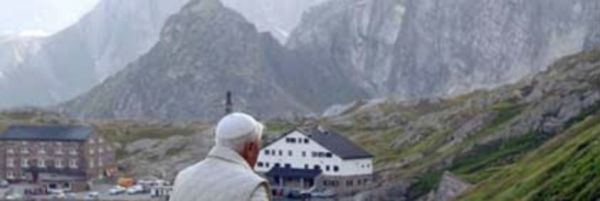Proverbial scene of the doubting Thomas that occurred eight days after Easter is very well known. At first he did not believe that Jesus had appeared in his absence and said: "Unless I see in his hands the print of the nails, and place my finger in the mark of the nails, and place my hand in his side, I will not believe" (Jn 20: 25).
Basically, from these words emerges the conviction that Jesus can now be recognized by his wounds rather than by his face. Thomas holds that the signs that confirm Jesus' identity are now above all his wounds, in which he reveals to us how much he loved us. In this the Apostle is not mistaken.
As we know, Jesus reappeared among his disciples eight days later and this time Thomas was present. Jesus summons him: "Put your finger here, and see my hands; and put out your hand, and place it in my side; do not be faithless, but believing" (Jn 20: 27).
Thomas reacts with the most splendid profession of faith in the whole of the New Testament: "My Lord and my God!" (Jn 20: 28). St Augustine comments on this: Thomas "saw and touched the man, and acknowledged the God whom he neither saw nor touched; but by the means of what he saw and touched, he now put far away from him every doubt, and believed the other" (In ev. Jo. 121, 5).
The Evangelist continues with Jesus' last words to Thomas: "Have you believed because you have seen me? Blessed are those who have not seen and yet believe" (Jn 20: 29). This sentence can also be put into the present: "Blessed are those who do not see and yet believe".
In any case, here Jesus spells out a fundamental principle for Christians who will come after Thomas, hence, for all of us.
It is interesting to note that another Thomas, the great Medieval theologian of Aquinas, juxtaposed this formula of blessedness with the apparently opposite one recorded by Luke: "Blessed are the eyes which see what you see!" (Lk 10: 23). However, Aquinas comments: "Those who believe without seeing are more meritorious than those who, seeing, believe" (In Johann. XX lectio VI 2566).
In fact, the Letter to the Hebrews, recalling the whole series of the ancient biblical Patriarchs who believed in God without seeing the fulfilment of his promises, defines faith as "the assurance of things hoped for, the conviction of things not seen" (Heb 11: 1).
The Apostle Thomas' case is important to us for at least three reasons: first, because it comforts us in our insecurity; second, because it shows us that every doubt can lead to an outcome brighter than any uncertainty; and, lastly, because the words that Jesus addressed to him remind us of the true meaning of mature faith and encourage us to persevere, despite the difficulty, along our journey of adhesion to him.
[Pope Benedict, General Audience 27 September 2006]












